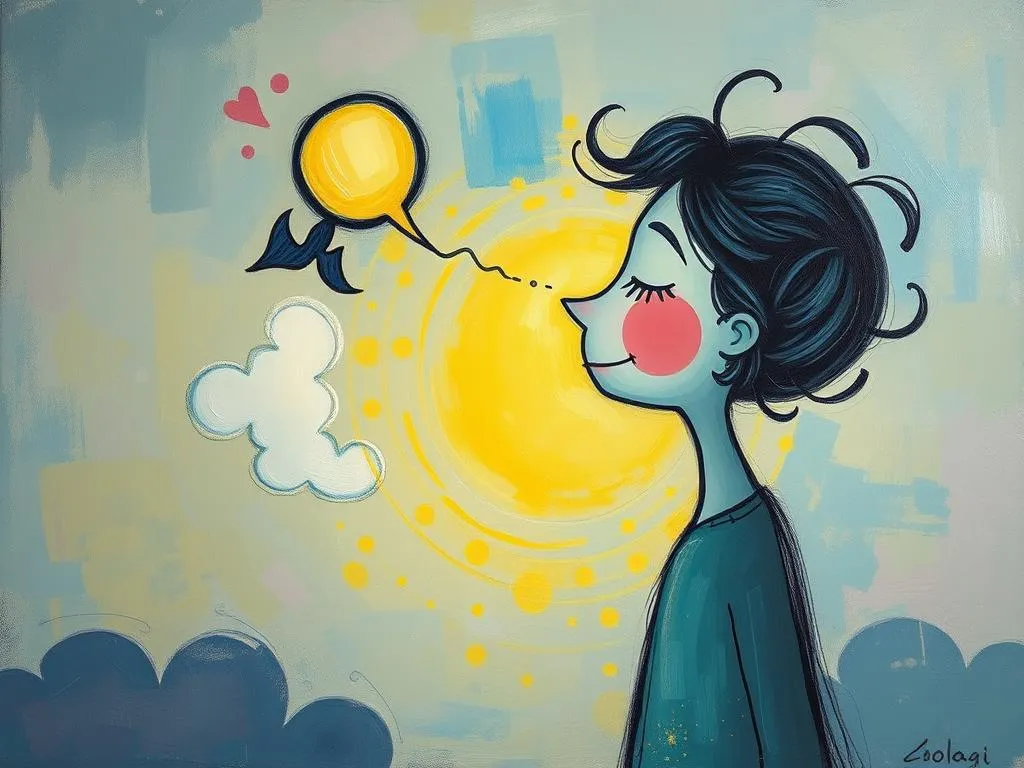
Have you ever woken up from a dream that felt so vivid and emotional that it lingered with you throughout the day? Dreams can hold profound meanings, serving as windows into our subconscious and reflecting our innermost thoughts, fears, and desires. They can be a source of mystery, often leaving us pondering their significance long after we’ve awakened.
As we delve into the world of dreams, we’ll explore how to decode the symbolic language of our nighttime narratives, uncovering the emotional undertones that shape our daily lives. By embracing the insights offered through dream interpretation, we can gain clarity and understanding, fostering personal growth and emotional resilience.
Dream Alchemy: Transforming Symbols into Meaning
Dreams are rich with symbolism, often translating our experiences, emotions, and unresolved conflicts into vivid imagery. The objects, people, and scenarios we encounter in dreams are not mere figments of our imagination; they are potent symbols carrying emotional weight. Understanding these symbols can help illuminate our emotional landscape and provide insight into our waking lives.
For instance, dreaming of water often represents our emotional state. Clear, flowing water might signify tranquility and clarity in one’s feelings, while turbulent water can indicate emotional turmoil or confusion. Similarly, a house in a dream frequently symbolizes the self; different rooms may represent various aspects of our personality or stages in our life.
Another powerful symbol is the snake, which can evoke feelings of fear but also transformation. In many cultures, snakes are associated with healing and rebirth, suggesting that facing our fears can lead to personal growth. To truly understand these symbols, consider your feelings while dreaming and the context of your waking life. What emotions do these symbols evoke within you?
Cultural perspectives also play a significant role in dream symbolism. For instance, in Indigenous cultures, dreams are often viewed as a connection to the spirit world, providing guidance and wisdom. In contrast, Western psychology, particularly Freudian analysis, emphasizes the unconscious mind and its influence on our behavior. By merging these perspectives, we can appreciate the multi-faceted nature of dreams and the emotional undertones they convey.
Dreamscapes of Feeling: Scenarios to Reflect On
Every dream is a unique tapestry woven from our experiences, thoughts, and emotions. Here are some scenarios to ponder that may resonate with your own dream experiences:
-
The Lost Child: You find yourself wandering through a crowded marketplace, desperately searching for a lost child. This dream may symbolize feelings of anxiety or fear of losing something important in your life, whether it be a relationship, opportunity, or even a part of yourself. The child represents your vulnerability and innocence, urging you to reconnect with your inner self.
-
Falling from Great Heights: In this dream, you suddenly plummet from a tall building, heart racing as you descend. Falling often correlates with feelings of insecurity or loss of control in your waking life. It invites you to examine areas where you feel unsupported or overwhelmed, encouraging you to seek grounding and stability.
-
Flying High: You soar through the sky, feeling liberated and free. This uplifting dream can signify a desire for freedom or a break from responsibilities. Flying often represents overcoming obstacles or achieving a new perspective on life. Reflect on what you might be aspiring to achieve or where you feel empowered.
-
Being Chased: You find yourself running from an unknown pursuer, heart pounding in fear. This classic dream may highlight feelings of stress or anxiety about an unresolved issue in your life. Rather than running away, consider what you’re avoiding and how confronting it could lead to growth.
-
A Mysterious Doorway: You stumble upon a door that feels strangely familiar but is locked. This dream may symbolize opportunities or desires that you feel are out of reach. The locked door represents potential waiting to be unlocked—reflect on what steps you can take to open new pathways in your life.
Each of these scenarios highlights the emotional undertones present in our dreams. By recognizing the feelings they evoke, we can better understand our subconscious mind and its reflections on our waking lives.
The Journey Within: Embracing Personal Growth
As we navigate the rich landscape of our dreams, we open ourselves up to personal growth and deeper self-awareness. The insights gained from understanding our dreams can lead us to confront our fears, embrace our desires, and heal emotional wounds.
To harness the power of your dreams, consider keeping a dream journal. Recording your dreams as soon as you wake will help preserve their details and emotions. Over time, you may notice patterns or recurring symbols that can guide your self-reflection.
Additionally, practice mindfulness to cultivate a deeper connection with your emotions. By tuning into your feelings during the day, you may begin to recognize the emotional threads that carry over into your dreams. This practice allows for a richer dialogue between your conscious and subconscious mind, fostering a sense of harmony.
Engaging in creative expression, such as art, writing, or even movement, can also be a powerful tool for understanding your dreams. By channeling your emotions into creative outlets, you may uncover hidden aspects of yourself that long to be expressed.
Lastly, remember that dreams are not definitive answers; they are invitations to explore. Each dream offers a glimpse into your inner world, encouraging you to reflect on what truly matters to you. Embrace the journey of self-discovery, and allow your dreams to guide you toward a deeper understanding of your emotions and desires.
As you reflect on your dreams, consider this: What if your dreams are not simply random images, but a conversation between your conscious and unconscious minds? By engaging with this dialogue, you can unlock the secrets of your emotional landscape and pave the way for profound personal transformation. In the end, the journey through your dreams is not just about interpretation—it’s about embracing the fullness of your emotional existence.







